Yrkeshögskolan Novia / AB Yrkeshögskolan vid Åbo Akademi
Country: FI
Partner budget: 560.698 EUR
Amount of ERDF funding: 420.524 EUR ERDF
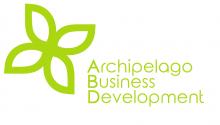
P1 Competitive economy
1.1. New Central Baltic knowledge intensive companies
Archipelago and Islands
01.10.2016 - 30.09.2019
1.638.511 EUR
1.228.883 EUR ERDF
The project Archipelago Business Development, also knows as Archipelago Partnership, aims at developing new business models in the archipelago by forming partnerships between entrepreneurs and start-up companies in Finland (including Aland Islands) and Sweden. The project also aims at exchanging knowledge between existing businesses and new potential entrepreneurs.
Existing businesses’ start-up expertise, paired with coaching techniques and the “Loopa”-method models for cross-border business development, will be used to educate and support entrepreneurs and business-counselling services. Students will be involved in co-coaching companies, internships, projects and thesis-work. The project will also organise international seminars to stimulate networking, knowledge-sharing and business development involving key stakeholders. The use of digital technology will result in the creation of platforms and applications to support cooperation in partnerships, business activities, sales channels and recruitment pools.
The target is to develop 10 new business models for existing companies through diversification, new seasonal solutions or cross border cooperation. A minimum of 60 existing SMEs will take part in the development process and we expect to trigger the creation of five new startup businesses.
Country: FI
Partner budget: 560.698 EUR
Amount of ERDF funding: 420.524 EUR ERDF
Country: SE
Partner budget: 341.869 EUR
Amount of ERDF funding: 256.402 EUR ERDF
Country: FI
Partner budget: 368.450 EUR
Amount of ERDF funding: 276.338 EUR ERDF
Country: SE
Partner budget: 367.494 EUR
Amount of ERDF funding: 275.620 EUR ERDF
The project Archipelago - strategic partnerships for business development inspired entrepreneurs in the archipelago and rural areas to develop through partnerships and training in Finland (including Aland Islands) and Sweden. The archipelago regions have certain challenges: small scale communities, depopulation, aging generation, strong seasonality, lower accessibility, etc.
The project wanted a minimum of 60 existing SMEs to take part of a development process, - the result was 185 companies involved in activities during three years. Different companies joined along the way, some participating in only one activity, whereas others participated in several.
As the main results the project targeted to achieve 5 new startup companies and 10 new business models developed by existing companies.
By the end of the project 12 new startups and 22 new business models through diversification and new seasonal solutions were achieved thus exceeding the targeted results.
The exceeding results show these activities were needed and filled a gap among the archipelago entrepreneurs. The partners’ solid start-up expertise, coaching techniques and innovative models for cross-border business development as the "Loopa” method were just on spot and successful tools in the project.
Students were also engaged in almost all project activities and therefore the actual amount exceeded the targeted by far (more than 200 student projects by about 80 students). Student involvement included course work, theses, hackathon, communication activities and internships.
The use of digital technology resulted in a new platform for information and networking www.archipelagobusiness.nu, which one partner stays responsible for.
The project results have already created new working methods and networks in the Turku archipelago area, so the lessons learned during project time have been capitalised.
“The main achievement is that we managed to reach and inspire a large group of archipelago entrepreneurs to develop their businesses together with each other. We managed this through our numerous activities, the matchmaking seminars, business clinics, accelerator program, international forums, and benchmarking trips, as well as through student assignments and individual consulting by our experts.
The entrepreneurs received new contacts, ideas, and tools and most importantly, courage to expand their current businesses into new areas and fields.
They also received hands on assistance regarding pricing, marketing, and search engine optimization, for example. … and more importantly, the entrepreneurs learned that they are not alone.”
Project website with all information https://www.archipelagobusiness.eu/
Project web page (in three languages)
About the project_Södertörns högskola
Svensk entreprenör: Finländare kan bli betydligt bättre på att nätverka
Iniö välkomnar inflyttare - sammanhållningen, naturen och tryggheten är trumfkort
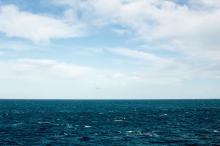
P2 Sustainable use of common resources
2.2. Sustainably planned and managed marine and coastal areas
Southern Finland - Estonia
01.10.2016 - 31.12.2019
1.997.882 EUR
1.563.522 EUR ERDF
The Plan4Blue project promotes sustainable planning and management of marine and coastal areas of the Gulf of Finland and the Archipelago Sea by developing a Maritime Spatial Planning (MSP) capacity. This aim will be achieved by setting up a cross-border collaboration in the field for this area.
The project supports growth of the marine and maritime sectors in a way that emphasizes the need to find a balance between economic, social and environmental goals. Because many of the economic activities cross borders and have cross-border impacts, planning and management requires cross-border collaboration between stakeholders and authorities.
The project responds directly to the programme goals by developing capacity in cross-border MSP in order to ensure a sustainable use of common resources. The project facilitates the collaboration of stakeholders and authorities to find cross-border solutions for sustainable planning and management of marine and coastal areas. The project focuses on cross-border aspects, but addresses also national and county levels as appropriate. The result will help to improve management of Gulf of Finland and its coastal areas.
Country: FI
Partner budget: 520.807 EUR
Amount of ERDF funding: 390.605 EUR ERDF
Country: EE
Partner budget: 453.400 EUR
Amount of ERDF funding: 385.390 EUR ERDF
Country: FI
Partner budget: 489.799 EUR
Amount of ERDF funding: 367.349 EUR ERDF
Country: FI
www.uudenmaanliitto.fi/englanti
Partner budget: 168.181 EUR
Amount of ERDF funding: 126.136 EUR ERDF
Country: FI
Partner budget: 167.995 EUR
Amount of ERDF funding: 125.996 EUR ERDF
Country: EE
Partner budget: 197.700 EUR
Amount of ERDF funding: 168.045 EUR ERDF
Country: EE
Country: EE
Country: EE
Country: EE
The Plan4Blue project worked with Maritime Spatial Planning (MSP), under which it produced four future scenarios to support planning and management activities.
These scenarios discuss:
Planning was improved in the Finnish Gulf area between Finland and Estonia. Also, Russia and Åland islands were included on an information exchange level.
The project also created a guidance document to manage environmental risks related to human activities. For the guidance document, three case studies on the topics of shipping, pelagic fishing and nature conservation were conducted. Based on this, recommendations were given on how each of these topics should be addressed in MSP and what are important cross-border considerations. In addition, the project developed recommendations for cross-border collaboration in the frame of MSP.
Concrete improvements by the project include:
During implementation, the project published several documents as tangible proof for the improved MSP:
Publications related to the above topics are listed below
Sustainable Blue Economies:
Environmental Management:
Spatial Analysis:
Cross-border collaboration in MSP:
More available on the project website.
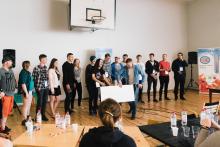
P1 Competitive economy
1.1. New Central Baltic knowledge intensive companies
Central Baltic
01.09.2016 - 31.01.2020
1.553.704 EUR
1.218.690 EUR ERDF
The CB region is characterized by significant differences in economic development. Regions of Sweden and Finland belong to the group of the most developed regions within EU. On the other hand, Estonia and Latvia show now the fastest growth of GDP in the EU. There is a strong potential and a need of further integration of CB countries’ economies via new CB joint business development activities, cluster cooperation and further integration of labour market. New SMEs are needed to complement business structures and enhance the economic situation in the EU.
This project is focused on the creation of joint cross-border companies and seeks to enhance and strengthen the CB region as a globally competitive hub for the cross-border gaming industry’s start-ups and companies. Planned cross-border activities help to identify and provide the missing links to the CB gaming sector ecosystem at the emerging phase of global gaming industry and to enhance its value in the global ecosystem. Cooperation in this new innovative sector is crucial to gain critical mass for the industry in the CB region and to increase the number of SMEs and jobs.
The project contributes in solving common challenges in the CB region’s gaming industry companies by identifying their common interests and needs for joint development, by supporting the creation of joint cross-border companies and their further integration and cooperation, and by developing a new type of gaming sector’s joint venture accelerator for the CB region. Specifically designed training and matchmaking events called Game Camps, will be organized in all participating countries.
During the project at least 10 new joint cross-border companies will be formed and a total of 240 people will participate in the Game Camps organized in Finland, Estonia, Latvia and Sweden. Also, an acceleration program is made for creating and mentoring new cross-border game startups
Country: FI
Partner budget: 620.278 EUR
Amount of ERDF funding: 465.209 EUR ERDF
Country: EE
https://www.inforegister.ee/80297758-EESTI-DIGIKESKUS-MTU
Partner budget: 35.043 EUR
Amount of ERDF funding: 29.786 EUR ERDF
Country: LV
Partner budget: 289.674 EUR
Amount of ERDF funding: 246.223 EUR ERDF
Country: SE
Partner budget: 399.308 EUR
Amount of ERDF funding: 299.481 EUR ERDF
Country: EE
Partner budget: 209.401 EUR
Amount of ERDF funding: 177.991 EUR ERDF
Country: SE
Country: EE
Country: LV
The project targeted to create 10 new cross-border companies in the gaming industry and contributing to solving common challenges in the CB region’s gaming industry. Identifying their common interests and needs for joint development and supporting the creation of joint cross-border companies and their further integration and cooperation and the networking and knowledge increase in CB region gaming sector.
By the end of the project 5 new cross-border start-ups were supported and several more cross-border teams still continued to develop their games and had potential to become new companies in the future.
In addition, the project has supported 15-20 existing new start-ups. They have been attending several events organised by the project and most importantly attended the Silicon Valley pitching trip in San Francisco in March 2019. This has resulted in new business opportunities and deal flow for the start-ups.
The Game Camps project brought together 240+ aspiring game developers from Finland, Estonia, Latvia and Sweden. More than 30 professional mentors have given presentations, lectures and mentoring sessions during the four Game Camps. Their involvement increased the participants knowledge about the gaming industry and improved their business skills. Hosting Game Camps for emerging start-ups and game developers proved to be an effective instrument to enable them to meet business developers. These were complemented with other activities offered to start-ups which gave a thematic ground for cross-border exchange and commitments.
One of the main results for the partner organizations, aside from meeting the objectives, was extensive experience and knowledge of challenges connected to internationalization and acceleration of start-ups within the gaming industry. Another would be that over 50 ideas were developed during these four bootcamp events (Tallinn, Riga, Kotka and Visby) and among them around 10-20 % have reached the gaming market.
Back from GDC - here is what happened! (Steam, 2019)
Uusi miljoonaluokan peliprojekti käynnistyy Kymenlaaksossa (Yle, 2016)
P1 Competitive economy
1.3. More exports by the Central Baltic companies to new markets
Southern Finland - Estonia
01.08.2016 - 31.07.2019
1.159.668 EUR
906.607 EUR ERDF
The FINEEX Music project facilitates the joint development of cross-sectoral services and products and opening of new export opportunities in Japan for the Finnish and Estonian music industry and for other sectors for which export cooperation with the music industry can bring added value.
Japan is a highly promising market for the Nordic-Baltic culture and music. Much of the music industry export potential, however, remains untapped. At the same time Finnish and Estonian markets have experienced a downturn in the music industry sales. Finland and Estonia are small countries with limited capacity, resources and public financial support for music export. A cross-border cluster and joint sales efforts would strongly benefit the music industry export to Japan. The project approach is based on the cross-sectoral co-creation and cooperation between the music sector and other business sectors such as design, gaming, film and high-tech.
The project utilises well-known annual music industry networking events (Music & Media Finland and Tallinn Music Week) as matchmaking and showcase platforms as well as new business-university co-creation combining companies, music experts and students. A music export accelerator programme including the co-creation of new marketing concepts, design of demos and organisation of sales trips to Japan will be developed and piloted to facilitate the cross-sectoral value chain between the music industry and companies from other sectors, and to boost their sales in Japan.
Country: FI
www.tamk.fi/web/tamk/mediapolis
Partner budget: 335.821 EUR
Amount of ERDF funding: 251.866 EUR ERDF
Country: FI
Partner budget: 126.000 EUR
Amount of ERDF funding: 94.500 EUR ERDF
Country: FI
Partner budget: 100.355 EUR
Amount of ERDF funding: 75.266 EUR ERDF
Country: EE
Partner budget: 128.290 EUR
Amount of ERDF funding: 109.047 EUR ERDF
Country: EE
Partner budget: 109.000 EUR
Amount of ERDF funding: 92.650 EUR ERDF
Country: FI
Partner budget: 228.928 EUR
Amount of ERDF funding: 171.696 EUR ERDF
Country: EE
Partner budget: 131.274 EUR
Amount of ERDF funding: 111.583 EUR ERDF
The project “Boosting music industry exports to Japan through cross-sectoral collaboration” (FINEEX Music/Finest Sounds) aimed at increasing sales and new export contracts of Finnish and Estonian music industry companies in Japan. The most important achievements:
1) New contacts to Japanese music business were established and old ones strengthened, and a lot of silent knowledge from experienced exporters shared. Existing connections with Japanese music industry were updated, and trust built between them and new generation of exporters.
2) Export activities and sales of music companies on the Japanese music market were boosted. New companies in Finland and Estonia were attracted, and export strategies were built for them.
3) About 300-400 persons (from brands, SME's and Universities) participated in the project activities. They received information and competences about the Japanese market which will be beneficial in future export activities
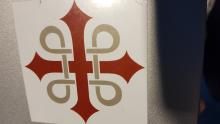
P2 Sustainable use of common resources
2.1. Natural and cultural resources developed into sustainable tourist attractions
Archipelago and Islands
01.09.2016 - 31.03.2020
1.503.194 EUR
1.127.395 EUR ERDF
The aim of this project is to create a pilgrim route, "St Olav Waterway", from Turku Finland to Åland Islands and Hudiksvall city in Sweden via the Archipelago. The route will be incorporated with other St Olav routes in Sweden and Norway. This itinerary is unique as it is the only pilgrim route that also include water pathways. The scope of the project is to increase the attractiveness of the region, especially off-season. Because the popularity of other parts of this route in Norway and Sweden is steadily increasing, it is expected that new services, jobs and an earning capacity for local entrepreneurs will increase as well.
To support the concept of sustainable tourism, paper brochure and signs/posters will be replaced by Digital solutions as often as possible. Discussions about applying for inclusion into the network "European Cultural Route of St Olavs Ways" have already started.
Because at the same time other organisations are implementing projects to recreate the St Olav Way from Turku to the east it seems possible that within some years the ”Route of Saint Olav Ways" will be expanded. Hopefully one day there will be a St Olav route all the way from Novgorod to Nidaros and Trondheim as there was 1000 years ago.
Country: FI
Partner budget: 297.897 EUR
Amount of ERDF funding: 223.423 EUR ERDF
Country: FI
Partner budget: 284.417 EUR
Amount of ERDF funding: 213.313 EUR ERDF
Country: FI
Partner budget: 158.351 EUR
Amount of ERDF funding: 118.763 EUR ERDF
Country: FI
Partner budget: 107.000 EUR
Amount of ERDF funding: 80.250 EUR ERDF
Country: SE
Partner budget: 89.228 EUR
Amount of ERDF funding: 66.921 EUR ERDF
Country: FI
Partner budget: 106.147 EUR
Amount of ERDF funding: 79.610 EUR ERDF
Country: SE
Partner budget: 190.452 EUR
Amount of ERDF funding: 142.839 EUR ERDF
Country: SE
Partner budget: 269.702 EUR
Amount of ERDF funding: 202.277 EUR ERDF
Country: FI
Country: SE
Country: SE
Country: FI
One of the biggest global trends of today is outdoor tourism, and specially wandering. St Olav Waterway wanted to create The Nordic Camino, a peaceful alternative crossing three countries. Olav Haraldsson (995-1030) was the King of Norway, and after his death he became one of the most important medieval Nordic saints. There are very many St Olav’s churches in the north of Europe.
St Olav Waterway created a 600 km pilgrim route for wandering and sailing from Turku Finland across the archipelago area and Åland Islands to Hudiksvall city in Sweden. The route shows Nordic history combined with culture and nature. St Olav Waterway represents sustainable tourism because slowly hiking and walking is sustainable. One important objective from the beginning was to extend the tourist season and attract visitors to these rural areas and islands also off-season.
There are a lot of attractions along the route, and the project made some of them more visible (ancient monuments, medieval churches, stories, etc). The project was successful with many partners and a lot of external and media interest. Thanks to the project the route was certified by Council of Europe as (the eastern) part of the "European Cultural Route of St Olav’s Ways" in December 2018. The route opened in May 2019 with a seven-week pilgrimage walk from Turku to Trondheim with a message from the Finnish archbishop to the bishop in Trondheim.
The route is in use, maintained by cities, parishes, and volunteer groups. A new association called ”Olofsleder I Finland - Suomen Olavinreitit” will maintain the route in Finland and Åland Islands after the project. Many Visit-organisations in Sweden, Åland and Finland are marketing the trail.
The project inspired others to plan for new/more St Olav related routes and tours in Finland. The overall plan is that there will be a St Olav route all the way from Novgorod in Russia to Nidaros and Trondheim in 2030, as there was 1000 years ago.
As a result, there is also an ongoing project for the first pilgrimage centre in Turku since medieval time, to be a meeting place, highlighting all existing routes in Finland, being a link to the European pilgrimage routes and answering to the increased interest of walking and reflecting.
There were also students involved in many ways, doing market research, testwalks and assignments.
There is a website in three languages with digital maps available. The website is maintained by one of the partners, city of Parainen.
https://stolavwaterway.com/en/.
The maps for Vikingaleden, teh Swedish part of St Olav Waterway, are avilable here and maintained by VisitRoslagen.
The first Pilgrim from abroad walking all the way from Turku to Trondheim was from Portugal and he started in April 2019. After that people from many countries have visited parts of the route.
"The Premiere Walk 2019 from Turku, Finland, to Trondheim, Norway - 1200 km" (in Swedish)
Scandinavian Outdoor DEVELOPMENT AWARD, 2020, St. Olav Waterway - A Nordic pilgrimage, Finland
St Olav waterway seminarium (2020)
"Tack alla initiativtagare och boende efter S:t Olofs sjöled" (2019)
Fem svenska pilgrimsleder att vandra, 2019
Ester deltog i premiärvandringen av St. Olav Waterway, 2019
Olavinreitti seuraa viikinkikuninkaan jalanjälkiä ja on pohoismainen pyhiinvaellusreitti, 2019
Ny vandringsled kan ge liten förening stort lyft, 2019
Åländsk galeas inviger pilgrimsled – besökte Söderhamn, 2019
På pilgrimsvandring i Svenskfinland, Podd 2019
Ålands första kulturrutt invigdes, 2019
Portugisisk pilgrim på Helgonleden genom Hälsingland, 2019
"En helt ny turistattraktion har skapats", 2019
Vandra från Åbo till Trondheim – anmälningstiden har börjat, 2019
Turku saa oman pyhiinvaellusreitin – Pyhän Olavin merireitti merkitään, keväällä vaellus, 2018
St Olav Waterway är nu officiell pilgrimsled, 2018
Olofs pilgrimsväg testvandrad, 2018
Skärgården vårt nya Lappland, 2018
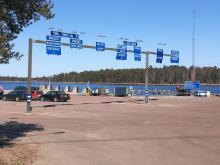
P3 Well-connected region
3.2. Improved services of existing small ports to improve local and regional mobility and contribute to tourism development
Archipelago and Islands
01.11.2016 - 31.12.2019
2.725.455 EUR
2.044.091 EUR ERDF
Currently common challenges for small ports especially in archipelago and islands are 1) limitations in safe access arrival, stay and departure the port due to less experienced seafarers as well as nature factors such as shallow and rocky routes, 2) lack of sustainable resource efficient services in ports, and 3) insufficient marketing activities separately in each port. In our project, these challenges are solved by mating the pilot small ports with the sailing triangle from Rauma, FI through Sottunga and Kökar, ÅX to Gävle-Söderhamn region, SE. Rauma and Gävle are also official sister cities. These areas have huge potential for visitors to the area both by the nature values and urban services. However, these small ports need practical co-operative actions to improve local and regional mobility and contribute to tourism development.Our pilot small ports are owned and operated by the cities or private company in Rauma, FI, Sottunga and Kökar (ÅX) and Gävle and Söderhamn (SE). The practical activities in pilot small ports are 1) formation of interactive step-by-step guidance by using ICT solutions, compatible with those existing used by the operators, for seafarers on safe arrival, stay and departure to/from the ports, 2) investments to sustainable and resource efficient infrastructure on land (e.g. solar energy, water, sanitation and WIFI availability), 3) mating the small port operators with each other and with seafarers (local people and visitors) in the small ports to meet the needs for services and their availability as well as co-operation activities i.e. marketing.The PortMate will enhance safe access, suitable "green services" and joint marketing in small ports. The best practices on share of pilot small ports with good services will be expanded to other Central Baltic areas by an open access web-based ICT solution as well as in face-to-face events. The result will be 19 Central Baltic small ports with improved services.
Country: FI
Partner budget: 640.581 EUR
Amount of ERDF funding: 480.435 EUR ERDF
Country: FI
Partner budget: 539.936 EUR
Amount of ERDF funding: 404.952 EUR ERDF
Country: SE
Partner budget: 463.486 EUR
Amount of ERDF funding: 347.614 EUR ERDF
Country: SE
Partner budget: 535.496 EUR
Amount of ERDF funding: 401.622 EUR ERDF
Country: FI
Partner budget: 272.745 EUR
Amount of ERDF funding: 204.559 EUR ERDF
Country: FI
http://www.havspaviljongen.ax/en/
Partner budget: 273.212 EUR
Amount of ERDF funding: 204.909 EUR ERDF
Project partnership worked during end 2016-end 2019 to improve services in 19 small ports in Finland, Sweden, and Åland (Rauma, Gävle, Söderhamn, Kökar, Sottunga and other small ports nearby). A considerable part of the project budget and resources was devoted to the upgrade of investments – service houses, waste management solutions, drinking water, lighting, renewable energy by solar panels, etc, which is a valuable achievement that is used by boaters and other small port users today and during coming years.
The project also worked on resource efficiency in the small ports. As result, a practical guide on technology, purchasing & installation, and perfect small port within resource efficiency: best practices and sustainability were developed. In addition, guidance videos on resource efficiency solutions and installations were released.
The resource efficiency was considered also as much as possible when upgrading investments in the small ports (using led lights, placing solar panels).
The project worked also on the most essential aspects of boaters' safety and produced series of videos, concerning the safe approach to the pilot ports, best practices when sailing and a collection of risky situations at sea. Safety equipment was upgraded in some project small ports.
Finally, throughout the duration of the project, PortMate collaborated with other Central Baltic and international projects, finding both a common background and possible synergies for future implementations.
This cross-border cooperation created an extended network, that was evident at the PortMate final conference, which collected the presence and presentations of many different projects and organizations.
All these efforts created the conditions for future developments of the PortMate core themes.
All achievements and other materials of PortMate are collected to a freely available browser-based ICT tool at http://www.portmate.eu/ .
The project results are compiled in English, Finnish, and Swedish.
PortMate website Safe and Green Small Ports
Final Newsletter 2019 - all investments listed
Luvassa entistä enemmän energisiä pienvenesatamia (2020)
Vihreitä investointeja ja veneilyturvallisuutta satamiin
Söderhamns gästhamnar har fått ökad service och säkerhet

P2 Sustainable use of common resources
2.1. Natural and cultural resources developed into sustainable tourist attractions
Archipelago and Islands
01.01.2017 - 31.12.2019
1.490.113 EUR
1.172.908 EUR ERDF
ENDED. The underwater landscape of the Baltic Sea is a unique ecological and cultural-historical environment resulting from the combination of a long seafaring history and good preservation conditions. The remains of shipwrecks in Estonian, Finnish and Swedish waters, many of them hundreds of years old, often sit upright with masts and rigging still intact. In this aspect, the Baltic Sea is a giant underwater museum waiting to be visited
The project "Baltic History Beneath Surface: Underwater Heritage Trails In Situ and Online" aims to demonstrate the huge tourism potential of the underwater cultural heritage of the Baltic Sea by developing easy and convenient ways for visiting our unique and well preserved underwater sites in situ.
The project will produce several new tourist attractions in the Baltic Sea that are supplied with buoys, underwater information boards and dive trails. With the creation of these tourist attractions we aim at enhancing the attractiveness of the Baltic Sea destinations and increase the number of visits to our region.
Country: EE
Partner budget: 459.432 EUR
Amount of ERDF funding: 390.518 EUR ERDF
Country: FI
Partner budget: 250.686 EUR
Amount of ERDF funding: 188.014 EUR ERDF
Country: SE
Partner budget: 462.320 EUR
Amount of ERDF funding: 346.740 EUR ERDF
Country: EE
Partner budget: 80.400 EUR
Amount of ERDF funding: 68.340 EUR ERDF
Country: FI
Partner budget: 88.875 EUR
Amount of ERDF funding: 66.656 EUR ERDF
Country: SE
Partner budget: 135.000 EUR
Amount of ERDF funding: 101.250 EUR ERDF
Country: EE
Partner budget: 13.400 EUR
Amount of ERDF funding: 11.390 EUR ERDF
Country: FI
The well-preserved wrecks in the Baltic Sea waters are unique in the world. The underwater landscape is a special environment resulting from a long seafaring history and good preservation conditions. The remains of shipwrecks in Estonian, Finnish and Swedish waters often sit upright with masts and rigging still intact. In this aspect, the Baltic Sea is a giant underwater museum waiting to be visited.
The project "Baltic History Beneath Surface: Underwater Heritage Trails In Situ and Online" developed safe ways for tourists visiting some well-preserved underwater sites in the Baltic Sea. People interested in maritime history, shipwrecks, and diving can now make a digital visit or come in real life close to the wrecks on or beneath the water surface.
In project BALTACAR, partners responsible for the management and preservation of sensitive underwater cultural heritage (UCH) from three neighbouring countries worked together with partners in tourism. Together the partners made the underwater cultural heritage more visible, more accessible and safer.
The selected UCH sites in Finnish, Swedish and Estonian waters were properly documented. The collected historical information, 3D and photogrammetry images, and wreck cards can be used when planning and preparing for the dive. It provides divers and non-divers a virtual diving experience. For many potential visitors, the first contact with the dive park will be digital. That is why the produced materials and the interactive website are so important.
The new underwater infrastructure to selected wreck sites consists of mooring buoys for the boats bringing visitors to the sites and underwater information signs along the dive trails with basic information about the wrecks. The signs include a map displaying the location of the visitor, which makes it safer and easier to orientate under water.
The project results, publications and handbooks are free of use for all interested. The website contains materials, information on the developed attractions, the diving destinations of the region, and on what you need to know for travelling.
The project has already served as an inspiration to others planning to establish dive parks in their region.
Project information, Swedish partner
Project information, Finnish partner
Maritime Archaeology in Finland: History and Future Tasks (Article 2021)
CREATING A DIVE PARK FROM IDEA TO REALITY, Handbook
Baltic History Beneath Surface, Ed. Maili Roio (2020)
Dalarö dykpark en del av EU-projektet Baltacar, Sportdykaren 4-2019
Frozen in time, Diver Magazine UK (divernet.com) 2019
Frozen in Time 2, Diver Magazine UK (divernet.com) 2019
Eesti liitub UNESCO veealuse kultuuripärandi kaitse konventsiooniga (2020)
3D Model The Dalarö wreck/ Bodekull part 2, Sweden
Vrak utanför Dalarö dokumenteras (2018)
Veealuse muuseumi külastamiseks on vaja erivarustust ja -väljaõpet (2018)
Sander Kiviselg Sündimas on esimene veealune muuseum (Radio 2018)
Meriarkeologit kasvattavat Itämeren sukellusturismia Baltacar-projektin puitteissa (Blog 2018)
Laevavrakid saavad turismiatraktsioonideks (2017)
Allveearheoloogid on neli vrakki dokumenteerinud (2017)
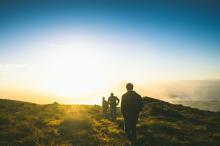
P4 Skilled and socially inclusive region
4.1. More people benefiting from stronger Central Baltic communities
Central Baltic
01.09.2017 - 31.08.2019
271.286 EUR
207.984 EUR ERDF
The overall objective of the MUCH MORE project is to contribute to improved social inclusion and health of middle-aged men with a past addiction problem, who want to stay away from alcohol. While in general the health of men is worse than women, the middle-aged men, after heavy alcohol use, experience several vulnerabilities, as their social and working life ties have suffered. The public services face challenges in providing a complex life guidance for this difficult-to-reach target group. There is lack of low-threshold, attractive and empowering activities for men that focus on manual work or trips to nature and at the same time provide health and life advice.
The project will develop an intervention model, which combines do-it-yourself and nature-based activities with social and working life counselling in peer-groups. Furthermore, the training concept and project experience will be spread among health and social professionals. As a result, men should be better prepared to reunite with the society and their families.
Country: FI
Partner budget: 28.075 EUR
Amount of ERDF funding: 21.057 EUR ERDF
Country: FI
Partner budget: 58.895 EUR
Amount of ERDF funding: 44.171 EUR ERDF
Country: FI
https://vssininauha.wordpress.com/
Partner budget: 68.560 EUR
Amount of ERDF funding: 51.420 EUR ERDF
Country: LV
Partner budget: 45.198 EUR
Amount of ERDF funding: 38.419 EUR ERDF
Country: SE
Partner budget: 70.558 EUR
Amount of ERDF funding: 52.919 EUR ERDF
The Much more project contributed to better social inclusion of the middle-aged men who have had addiction problems in their past. The project objective was to provide social support for men and thus empower them to reunite with their families and the society. Over 120 men were reached through peer-group activities in Sweden, Latvia and Finland.
The project partners from Gävle, Riga and Turku developed and tested an intervention model on how to involve target group men in planning and taking part in peer group activities. Based on the peer-group participants’ interest, the men tried different things from art therapy, cooking, hiking, and peer-group discussions in non-judgemental atmosphere. The methods used in different cities varied, but they all focused on participatory and easily accessible peer-group activities. Over half of the men kept coming back to the meetings and found them beneficial to them, so the project goals were reached.
Furthermore, the project also contributed to the capacity of health and social care professionals working with the target group that is difficult to reach. The partners organised several trainings for professionals who wish to try new methods to work with their clients. In total, over 50 professionals were reached in the project trainings.
The project compiled their most relevant learnings from trainings as a toolbox to be further utilised by other professionals. In addition, pros and cons of different participatory methods tested in the peer-groups were presented in the SWOT analysis.
Project website: projectmuchmore.weebly.com
P4 Skilled and socially inclusive region
4.1. More people benefiting from stronger Central Baltic communities
Central Baltic
01.09.2017 - 30.08.2019
240.635 EUR
187.586 EUR ERDF
The PRIME project addresses the urgent need of supporting the social, cultural and labour market integration of young recently arrived migrants between ages 18-30. The project focuses on developing a joint Young Migrants Training Programme. A cross-border approach is needed as young migrants in the partner regions to face common barriers of inclusion, including limited language skills and knowledge of local culture and economy, low skills/qualifications, high unemployment and a lack of social assets and support.
The cross-border approach will bring together the distinct specialisms of the partners, enabling them to develop a more comprehensive response to the target group’s needs. The project is highly innovative in its development of a holistic programme customised to individual needs. It will consist of a toolkit of options, including informal education to support engagement, language and cultural awareness training, vocational training, work placements, job brokerage and community based workplace mentoring. As a result, a sustainable cross-border network for addressing the integration challenges is created. The network is piloted among a group of migrants.
Country: SE
Partner budget: 145.475 EUR
Amount of ERDF funding: 107.652 EUR ERDF
Country: LV
Partner budget: 95.160 EUR
Amount of ERDF funding: 79.934 EUR ERDF
To promote the social and economic integration of young migrants aged 18-30 years who have limited knowledge of the host country’s language & culture and lack social capital & support, the project PRIME developed and piloted a training programme targeting young migrants with a refugee background in Linköping, Sweden and foreign students in Riga, Latvia.
The programme consisted of a toolkit of options, including, language and cultural awareness training as well as vocational training, work placements, job brokerage and community-based workplace mentoring. To measure the programme’s success, the project collected feedbacks from the young migrant participating in the training programme’s pilot & their mentors. The feedbacks showed that participants were satisfied with the training and with the knowledge and skills they acquired.
Within the programme framework, 100 young migrants participated in the training programme overreaching the initial target of 50. To support the programme, 40 mentors were also trained overreaching the initial target (15) in this instance too.
Lead partner's folder in English about the project
Lead partner's website with info about the project
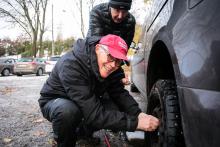
P4 Skilled and socially inclusive region
4.1. More people benefiting from stronger Central Baltic communities
Southern Finland - Estonia
01.10.2017 - 30.09.2019
265.241 EUR
207.317 EUR ERDF
The CoMe Strong project aims at activating inactive men aged 45-75, especially those who risk social exclusion. By improving their skills and knowledge that is useful in private life and on the labour market, their well-being and social inclusion will increase. All actions will be carried out in local level in order to build stronger local communities.
Initially, local kick-off events will be carried out, in which active local men are recruited as volunteers to take responsibility for the CoMe Strong Club actions. The volunteers will be trained to activate passive local men in the clubs in recreational and/or training activities. In addition, they will carry out small projects for the local community, such as school fence painting or freezing local an ice rink. These small projects will create new networks between men and the local community and promote stronger coherence. The CoMe Strong Clubs from Finland and Estonia will meet during summer for experience sharing and mutual learning. The Clubs will document their activities by filming short video-clips for communication purposes. As a result of the project, well-being and social inclusion of men is increased. The learnt skills can also be useful in the labour market.
Country: FI
Partner budget: 153.393 EUR
Amount of ERDF funding: 115.045 EUR ERDF
Country: FI
Partner budget: 27.986 EUR
Amount of ERDF funding: 20.989 EUR ERDF
Country: EE
Partner budget: 83.863 EUR
Amount of ERDF funding: 71.283 EUR ERDF
Country: FI
The CoMe Strong project aimed at activating inactive men aged 45-75 who were in a risk of social exclusion due to unemployment, loneliness and lack of family and friends. Partners from Turku and Tartu initiated a new model to activate the men by establishing Come Strong clubs which were places for men to gather and plan meaningful activities they wished to implement. The model was later presented for the social and health care professionals.
In concrete, 10 men’s club were established during the project and about 100 men took part to the club meetings frequently. The self-esteem of the men got better during the project, as they found new friends and learnt new things. Thanks to the clubs, the men had something meaningful to do. This also gave them a feeling that they are important community members.
An important aspect in the activities organised in the clubs was that activities were planned by the men and raised from their own interests. Having a significant role in planning and implementing club activities was important, as it gave confidence for the men who had not been in a such role before in their lives. Furthermore, the most active men were trained to take responsibility on running the clubs by themselves. This ensured that the clubs keep active still after the project end.
In addition, some community projects were carried out, and these activities were planned and often also filmed by the men themselves. The community projects varied from organising different events such as Christmas party in the neighbourhood to taking the elderly for a walk. After carrying out the community projects, some men also continued voluntary work in the elderly houses, which has made the men feel very important.
Project website: https://comestrong.turkuamk.fi/fi/
Info video in Finnish
Info video in Estonian
Experience between Come Strong clubs were exchanged during the Summer Days when the men from Finland and Estonia travelled to meet each other. For many men this was their first trip abroad.
Felika Tuul: Tartu tublid mehed tegutsevad Garaažis
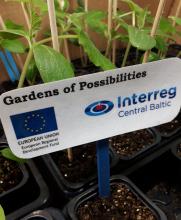
P4 Skilled and socially inclusive region
4.1. More people benefiting from stronger Central Baltic communities
Archipelago and Islands
01.01.2018 - 31.12.2019
280.000 EUR
210.000 EUR ERDF
Gardens of Possibilities is an urban gardening project, where rehabilitation, education and job training are combined. The target group is long term unemployed persons at risk of lifelong exclusion, as well as a group of unrecorded, not registered unemployed persons, so called NEETS (Not in Education, Employment, or Training).
The objective is to prevent and break social exclusion by giving the target group new competences and new possibilities on the labour market and in the society in general. The objective is reached through horticultural therapy, skills development, individual support and practical work. By participating in the project, the participants prepare for employment or education and get a better living situation. An individual mapping clarifies the participant's current situation, after which a plan with concrete goals is drawn up. In practice, the participants will work with cultivation of flowers and vegetables. The opportunity and challenge is to include people who are (under risk of being) socially marginalized into the society. The project will result in increased social coherence, social security and equal opportunities.
Country: FI
Partner budget: 167.250 EUR
Amount of ERDF funding: 125.438 EUR ERDF
Country: SE
Partner budget: 112.750 EUR
Amount of ERDF funding: 84.563 EUR ERDF
Country: SE
Country: SE
The project wanted to offer persons in risk of lifelong exclusion to take part in gardening activities. Through practical work in the garden together with individual counselling, you can get new competences and new possibilities on the labour market and in the society in general. Cultivation and horticulture have proven to be a good method as you see clear results of your own work, and the work gives you a sense of belonging and connection.
Within the project, the two partner organisations developed a method for integration and well-being of people far from the labour market and threatened by lifelong exclusion. The method includes horticultural therapy, skills development, individual support, and practical work in the garden.
It is based on the idea that everyone can work with the right support. The method must be adapted to the specific needs of each individual. For some it is important to work in a group, for some it is important to work individually. For some, it is important to have clear instructions while others want to do as they please. “One size does not fit all”.
The project working methods have been shared with both trainees and professional social workers in the regions.
The goal was to have 150 participants in the project taking part in the activities for at least ten hours (75 in Valdemarsvik and 75 in Åland), The result was only 84. There were challenges in reaching the target groups and getting the individuals to come, as everything was voluntary. The project team tried to visit various organisations and authorities, and information was spread in radio, newspapers and social media. This outreaching model took longer time but worked well, and the target group was also broadened to marginalized older people.
Many participants participated much more than ten hours. Many of the participants were still involved in the activities after the project end. For most people, the combination of work and support and interaction with other people have been of great importance. Many participants have, after some time in the project, been diverted to other organisations and to labour market initiatives and internships.
The investment in greenhouses was important for the project. Thanks to the greenhouses, the cultivation season was longer. The greenhouses also served as the project's face outwards.
The activities were integrated into the regular operations in the partner organisations, which means that people under risk of social exclusion can continue to take part in what the project offered. This low-threshold activity has proven to be very important for people who otherwise find it difficult to find employment. Gardens of Possibilities are maintained and available to the public and to organisations and groups wanting to work with green care. People can stay in the gardens with their own supervisors or ask for help of the partner organisations.
Target group examples:
The cross-border cooperation within the project worked fine on equal terms and with equal contribution to planning and implementation.
Project information Lead Partner website
Radio in Swedish, Del av Lunchronden 03.07.2018
Sweden_Fixar daglig verksamhet i ny trädgård
Åland_75 arbetslösa ska få jobb i odlingsprojekt
Sweden_Trädgårdsprojekt skapar sysselsättning
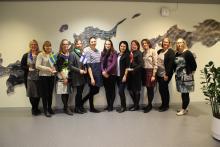
P4 Skilled and socially inclusive region
4.2. More aligned vocational education and training (VET) programmes in the Central Baltic region
Central Baltic
01.10.2017 - 30.09.2019
257.713 EUR
199.992 EUR ERDF
The overall objective of the SimE project is to improve nursing students’ ethical competence by creating three common study courses in order to develop more aligned VET programmes. The courses will be embedded in each partner organisation's curricula, which will result in increased ethical competence among nursing students in the Central Baltic region. Common courses and teaching methods ensure more harmonized education level in the region, and also more harmonized competence level of nurses working in these countries.
Development of the ethical competence of nursing students is done with help of multi-various methods, like simulation and practical training. Simulation environment is a safe and effective way for students to learn and practice complex ethical skills. The patients and health care providers in the Central Baltic region need more nurses that possess equal and ethically competitive nursing care. This can be achieved by building more aligned curricula in nursing education. Improved ethical skills serve the needs of healthcare providers, promote the mobility of the workforce and increase the quality of patient care. One of the project results is a communication platform for future professionals that encourages networking between VET institutions and nurses.
Country: FI
Partner budget: 105.296 EUR
Amount of ERDF funding: 78.972 EUR ERDF
Country: LV
Partner budget: 67.068 EUR
Amount of ERDF funding: 57.007 EUR ERDF
Country: SE
Partner budget: 85.350 EUR
Amount of ERDF funding: 64.013 EUR ERDF
The SimE project improved nursing students’ ethical competence in Finland, Sweden and Latvia. The main achievement of the project were the three aligned study courses (6 ETCS) on simulation pedagogy for nursing students, and an e-handbook on the course themes. Thus the project increased the share of aligned vocational education training curricula in the region.
The course topics were:
1) Basic Ethics in Health Care (2 ETCs),
2) The Ethical Coffee Room (1 ETC),
3) Simulations in Ethical Issues (3 ETCs).
In addition to providing a general introduction to ethics in health care, the project provides tools for understanding the essential concepts of ethics, moral and norms and exploring different ethical values that are often culture related. This will ease the nursing students to meet patients from different background.
The project courses encourage the students to familiarise with ethical guidelines and articles but also patient care studies. Anonymous online environment is provided for students to discuss with peer student group on student’s own experiences on challenging ethical situations that they face during the clinical practise. Furthermore, the courses provide simulation practises on different ethical scenarios, after which the students give and receive feedback on their ethical activity from the peer students.
Course material was compiled in the e-Handbook with the guidelines how to implement the course.
Website: https://simethics.eu/
The SimE project improved nursing students’ ethical competence in Finland, Sweden and Latvia. The main achievement of the project were the three aligned study courses (6 ETCS) on simulation pedagogy for nursing students, and an e-handbook on the course themes.